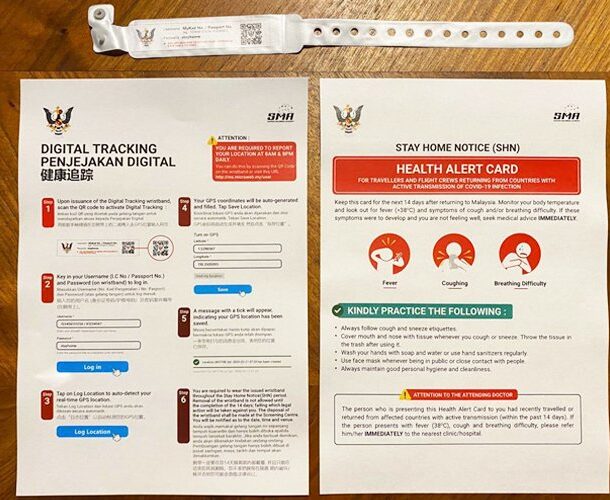As over half-a-million Malaysians get ready for interstate travel using the Gerak Malaysia app starting today, activist Jac SM Kee said the app’s data retention policy is too long.
She pointed out that the incubation period for Covid-19 is only up to 14 days, but the Gerak Malaysia app’s data retention policy is to store users’ data for up to six months after the end of the movement control order (MCO) period.
In principle, she said contact tracing apps should keep its functions to a minimum and retain data for the least amount of time while being functional.
“There is no reasonable logic why we need to keep this data for any longer than, say – even if push comes to shove – a month,” she said during Astro Awani’s Consider This talk show last night.
Kee, who is the Centre of Independent Journalism co-director, said that while various personal data is being collected on the pretext of facilitating contact tracing in the event someone subsequently tests positive for Covid-19, Malaysians enjoy almost no legal protection that would otherwise prevent the data from being abused.
Not only that, the Personal Data Protection Act 2010 is woefully inadequate for that purpose, it is also applicable only for data processed for commercial purposes.
“(That) means any data being processed by the government is completely exempt, automatically,” she said.
Kee added that making contact tracing apps mandatory could backfire by reducing trust in the system, and trust is critical to its success.
To a question from the hosts, Kee dismissed the suggestion that it is inappropriate to bring up privacy concerns in the midst of a public health emergency.
Instead, she argued that now is the best time to hold discussions on the matter.
“You can’t trade off one set of rights for another.
“They are both equally very important, and privacy is such a fundamental right towards your sense of safety and dignity that it is absolutely, completely connected to the conversation on public health.
“It is the government’s duty to protect both,” she said.
Also making an appearance on the show is Malaysian Communications and Multimedia Commission chairperson Al-Ishsal Ishak, who spoke on the need for the Gerak Malaysia app.
Currently, the government has released three apps as part of its Covid-19 response. Two of these – MyTrace and Gerak Malaysia – have functions that could facilitate contact tracing.
Gerak Malaysia is used to facilitate interstate travel during the MCO period and has location-tracking functions.
According to the police, 503,276 people have applied for interstate travel starting today until May 10.
It is unclear how many have used the app to file the application as opposed to a manual application through a police station. However, Al-Ishsal said between 80 and 90 percent of Malaysians own a smartphone.
Meanwhile, the MyTrace app logs Bluetooth “handshakes” between nearby devices running the app, which can then be used for contact tracing if needed.
Science and Technology Minister Khairy Jamaluddin said the data is anonymised and stored locally on the devices, and will be deleted after 21 days.
The app is only available for Android devices, while an iOS version will be launched soon.
Its FAQ section says the app does not collect location data, but the Android operating system is designed as such that users have to grant the app access to location data in order for the app to use the phone’s Bluetooth functions.
It said the iOS version would only need access to Bluetooth functions to operate.
Apart from these, the Selangor government has introduced the “SELangkah” system for contact tracing.
Under the SElangkah system, business owners can display a QR code at their premises for customers to scan when entering the premises. This produces a log of who has visited the premises, which could then be used for contact tracing if needed.
Previously, University of Oxford researchers warned that Covid-19 spreads too fast for traditional contact tracing methods to keep up, but supplementing this with the widespread use of digital contact tracing could boost the chance of successfully containing the outbreak.
However, the influential scientific journal Nature has voiced concerns over the use of such apps, and have urged governments around the world to engage with stakeholders to ensure that it is both safe and effective.
Source and header picture credit: Malaysiakini
Note: Jac is also the co-director of the Centre for Independent Journalism.
